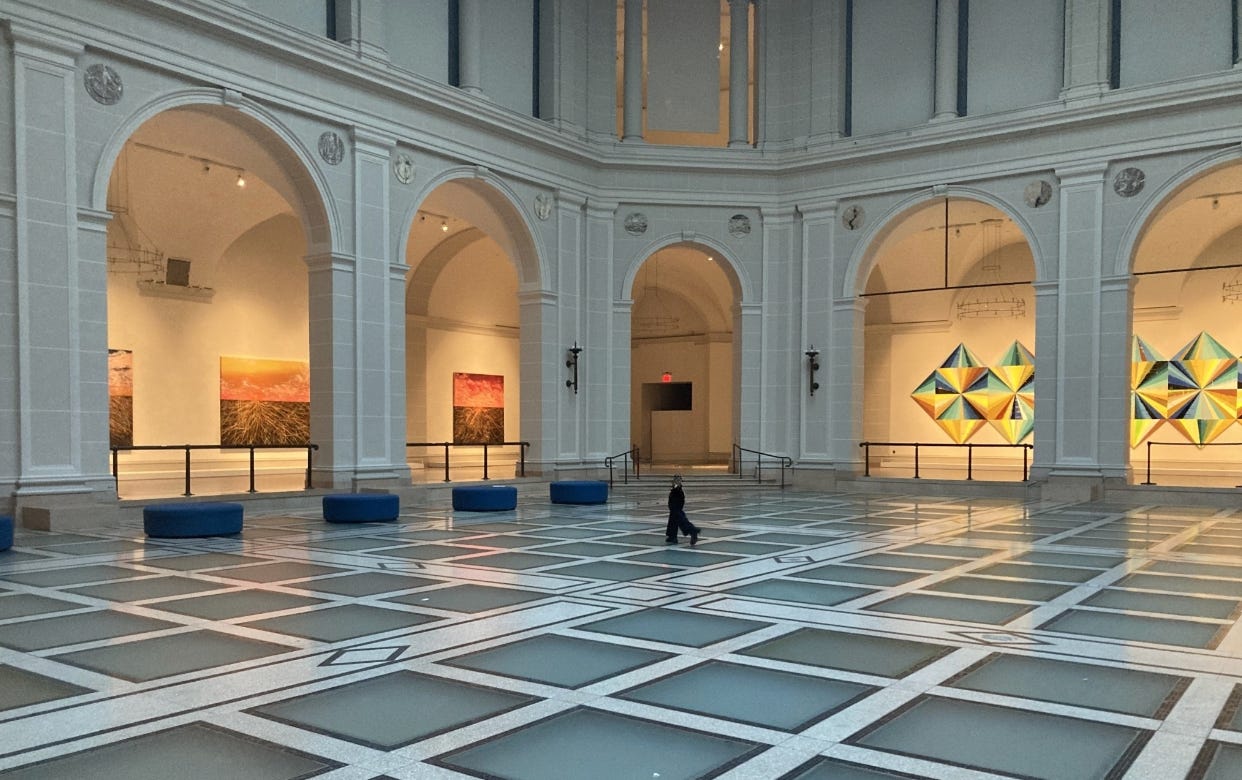I never really stop to think of who reads these. After every post, Substack sends me anonymous figures, open-rates, engagements metrics, etc. But if I ever actually considered the presence of your eyes behind the screen, I’d freeze. Just like how if we were in a room together, I’d be silent. Or not silent, but certainly not getting poetic on post-post-modernism or the eclipse. It’s a kind of sick irony that one of my strongest desires in life is to Increase My Readership, but that for every new reader I have I grow more anxious about the act of being perceived.
I have crippling stage fright. I didn’t accept this until recently— if you know me, it may seem as strange to you as it was to me. I had a web series in high school, and spoke to 10,000 daily listeners on the radio, but if I’m ever physically standing on a raised platform with a microphone, even in front of just five people, I freeze. The experience is like blacking out— I have no interior dialogue while I’m up there, and virtually no memory of what happened once it is over. And yet the whole idea, here, is to get an audience. Or I guess not really— it’s to write the best I can.
But the audience still matters, for some reason. It may be because I want to pay a mortgage with these words, or that you validate what I do to some degree that I can’t validate myself. There are so many wallowing cries from great artists towards their audience which try to define this complicated relationship. Colin Meloy sang “We know, we know: we belong to you.” Josh Tillman’s “I hate to say it, but each other’s all we’ve got.” Fiona Apple says “none of this will matter in the long run, but a sound is still a sound when no one is around. And I know that you know that you got the potential to pick me up. And I want you to use it, blast the music.”
Beneath the cry for attention, the shielding of the eyes from the lime-light, there is the urge to make it great. The urge to say something meaningful + well. T.S. Eliot called it a “raid against the inarticulate, with shabby equipment always deteriorating in the general mess of imprecision of feeling, undisciplined squads of emotion.” He said about writing that “whatever there is to conquer has already been discovered once or twice by men whom one cannot hope to emulate.” This, coming from the man so many of us are hoping to emulate. But that’s not what we’re talking about here. Not about the purity of the craft, about the size or necessity of the audience. We’re talking about you.
And who are you? Increasingly, you are strangers. Eight of my last ten subscribers are names I’ve never seen before, which means there are people in this world who I have never and will never meet yet who read these constructed thoughts— who go on perceiving me by my craft. It means that these passages, some of which are the product of months of research and some which I craft in fifteen minutes, arrive with remarkable futility in your email, of all places, once a week or once a month. And then what do you do? Do you read them, skim them? Do you re-read, annotate, parse the influences and references and cross-check them against my sources? Do you
or do you forget, immediately, as I try to do? Does it matter? Is there a difference between an audience which pays attention and one which doesn’t? And, since we’re saying it all, is there anything more grotesque than an artist speaking directly to his readers? all while calling himself an artist? Can this possibly go on?
Who are you? And why are you here? And how can you help me, I wonder, and have I helped you, I’m afraid to ask. But who are you? Could it be you, out there, reading this? It’s something I’ve never let myself believe, something I’ve been terrified to even consider. Because in front of you I have nothing to say— I’ve never once been able to say anything. And in front of you I’ve said everything, since you understand me better than I ever could.
The last line of that T.S. Eliot poem hangs above my desk in Harlem. It was above my desk in Los Angeles, too, five years ago. And even though it tells me to tear itself down, I can’t. Because it reminds me that whoever you are, this is yours now. Once I hit send, I have no possession of these words just as Eliot has no possession over his. It reminds me that whether you’re out there or not, I have to go on blindly. That the path to success is a drunken rampage, unfortunately. And it’s only once you’re there that you can survey the damage if you dare. “For us,” Eliot says, “there is only the trying. The rest is not our business.”



He does it again 🤌